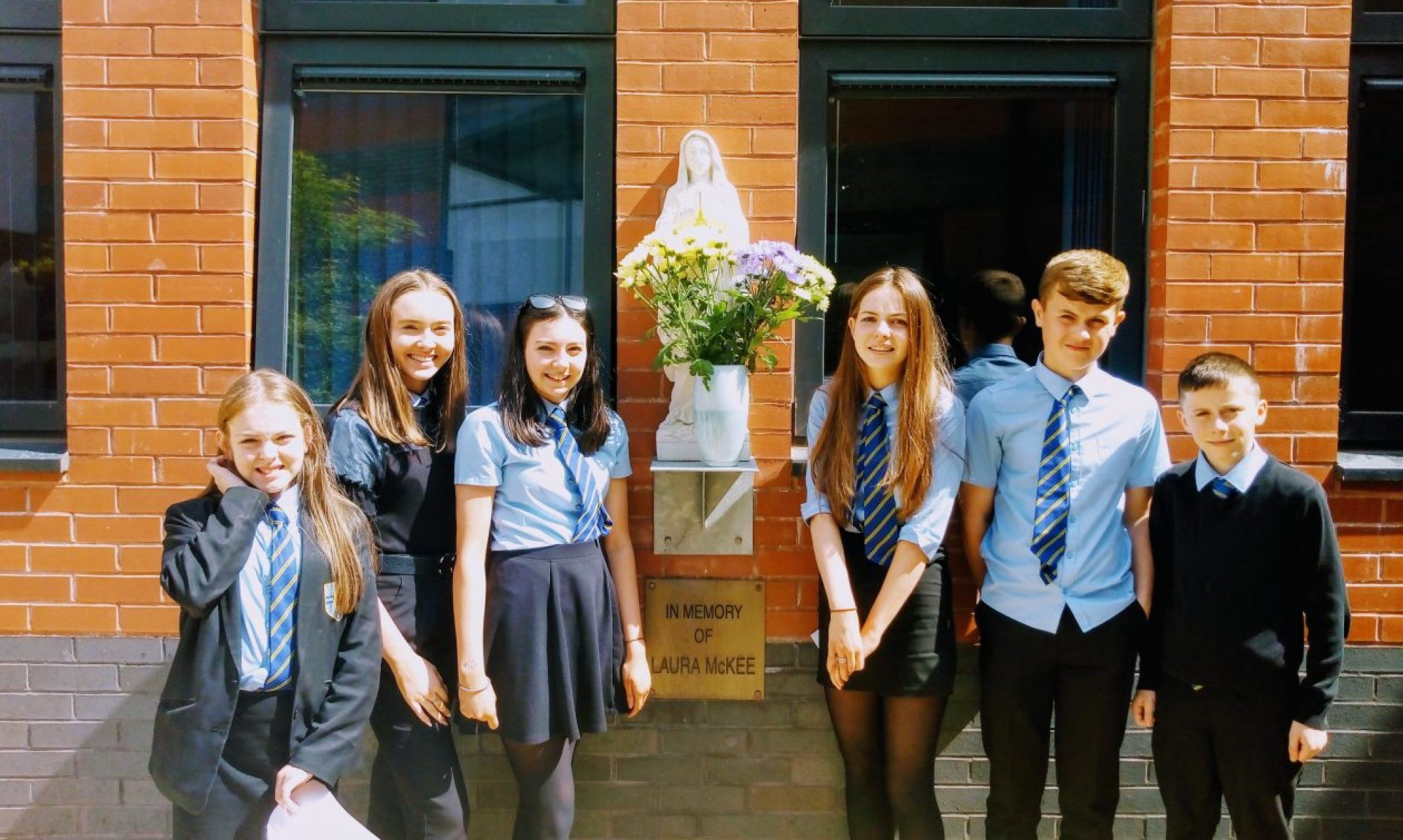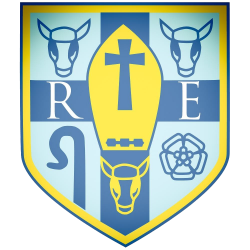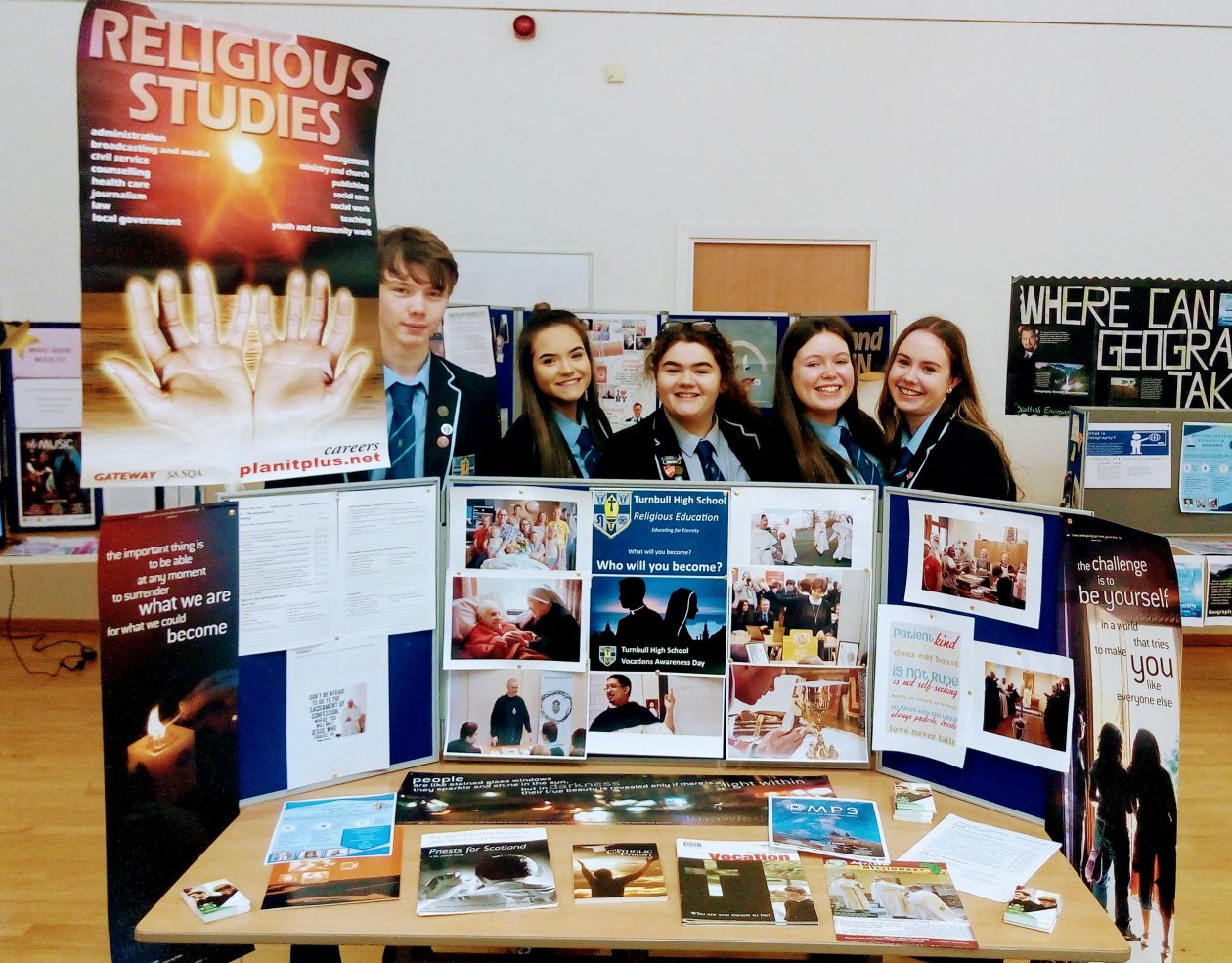Essential features of the Catholic school are the prominence of Religious Education within the curriculum and the role of the Sacred Liturgy in creating a Christian ethos within the school community. At Turnbull High School this is delivered through two periods of RE each week as a core subject and the young people’s legal entitlement, and through our extensive chaplaincy programme. Parents who elect to send their children to this school, therefore, are expected to accept these traditions as fundamental to a Catholic education.
Religious Education
Religious Education in Catholic Schools follows ‘This Is Our Faith’ (TIOF) a national curriculum developed under the auspices of the Catholic Hierarchy of Scotland. In Turnbull High School, our unique courses enable pupils of all stages to access varied and engaging lessons, which have academic discipline and spiritual formation as their goal.
Rooted in philosophy, theology and with an emphasis on Higher Order Thinking Skills, young people across the BGE and Senior Phase engage with a range of sources and learning contexts to deepen their understanding of the Catholic faith. Courses offer young people a firm grounding in the nature of the Blessed Trinity, the unique place of Our Lord Jesus Christ as the saviour of the world, salvation history, the role of the Blessed Virgin Mary, the Holy Sacrifice of the Mass and the Sacraments, the Sacred Scriptures, Sacred Tradition, the nature of the Church, Catholic Social Teaching and the Kingdom of God, apologetics, ethics and morality (in particular the protection of human life from conception to natural death and God’s plan for human relationships) in an atmosphere of respect and openness. Young people undertake studies on Judaism, Islam and Sikhism in order to understand other worldviews in comparison to our Catholic faith and have opportunities to formalise their achievement through presentation for the SQA Religion, Belief and Values units at levels 4 and 6 and the Caritas Award.
Academic formation is accompanied by continuous spiritual development as pupils apply their learning to their own relationship with Our Lord and the discernment of their vocation in life. Pupils consider the ways in which they are called to serve God and neighbour and learn to pray through participating in the Sacred Liturgy (Holy Mass and parts of the Divine Office), programmes on Vocal and Mental Prayer (Lectio Divina) and seasonal devotions such as prayers for the Holy Souls, litanies, novenas and a consistent focus on the Holy Rosary.
Both academic and spiritual formation are greatly supported and enhanced by our collaboration with many partners who deliver talks and retreats as well as our school chaplains who offer the sacraments for us. At a whole school level, the formation of our young people is enhanced by an extensive programme of retreats. These range from our school prayer that starts each school day, a weekly timetable of devotions and services, ‘in-house’ retreat experiences and pilgrimages, to large-scale missions with visiting leaders.
A Catholic education is not limited to the Religious Education classroom but consists of a coherent presentation of, and search for, beauty, truth and goodness in all subject areas. In order to strengthen this within the school, Interdisciplinary Learning (IDL) initiatives, such as our Star of Bethlehem project with the Physics department, are being developed. In turn, the high expectations and corresponding support that we offer will develop transferable skills which will benefit pupils in their study of other academic disciplines.
In summary, the aim of Religious Education at Turnbull High School is to provide an Education for Eternity: to form our young people as confident and enthusiastic Catholics who are equipped to engage intellectually with the culture and live as authentic witnesses to the Gospel in their state in life.
Full details of the RE curriculum and chaplaincy provision can be found on our RE and Chaplaincy Blog (https://blogs.glowscotland.org.uk/ed/turnbullre/)
(Taken from our School Handbook, Dec 2020)



